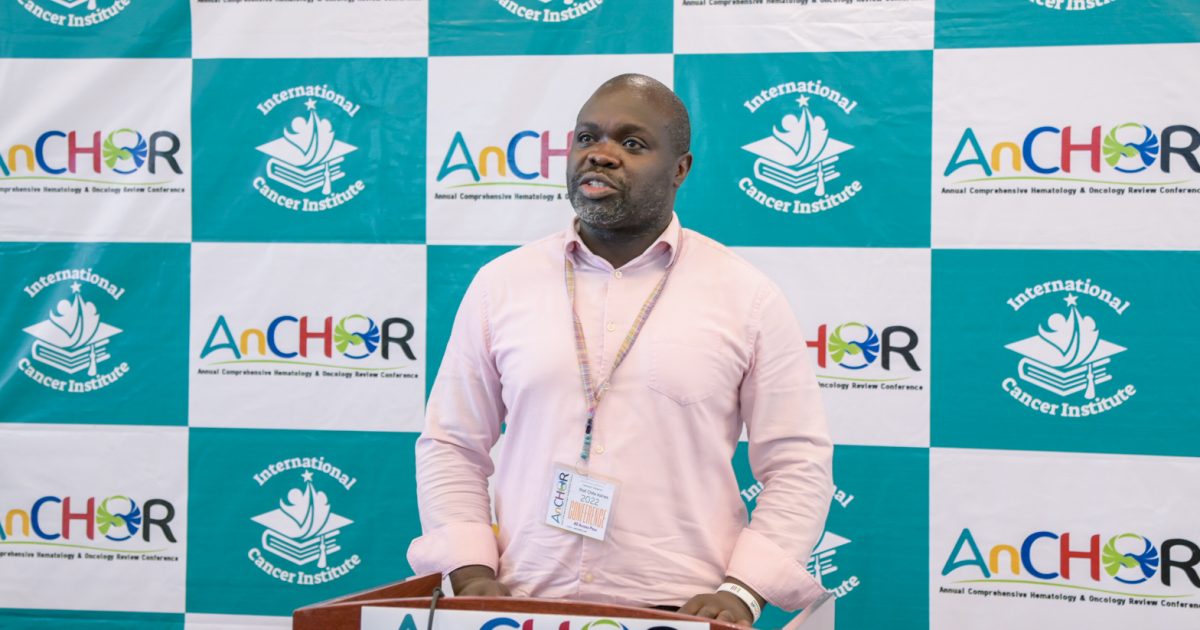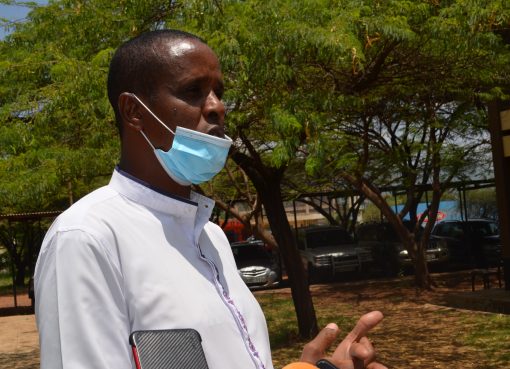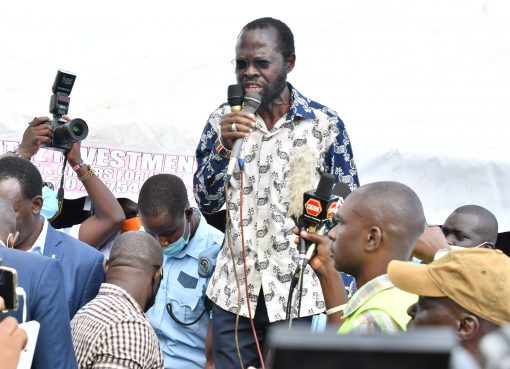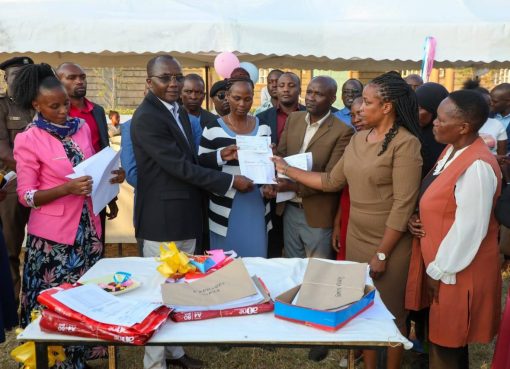The International Cancer Institute (ICI), held its inaugural Annual Comprehensive Hematology and Oncology Review (AnCHOR), Conference with main theme of the conference being “Towards Innovation and Advancement in Hematology and Oncology in sub-Saharan Africa.”
The conference attracted Oncology doctors across the continent who have expressed fears that cancer menace is still a serious crisis that needs to be addressed urgently to scale down its effect.
Dr Chite Ariswa, the CEO of International Cancer Centre and Principal Investigator for the Blueprint Program for Kenya, Tanzania, Uganda and Rwanda raised concerns that many patients lack proper diagnosis at an early stage, leading to high mortality rate due to diagnosis in advanced stages and access barriers to medical care services.
“For the healthcare professional’s delaying our patients, patients are presented to us in need of help and delays are the order of the day. I am quite surprised, some hospital patients fail to get results from the biopsy up to six months, and this is very unfortunate for the noble fight against cancer,” said Prof. Asirwa.
He indicated that there is a role to be played by the government because, nothing happens until the government puts down its foot to ensure that they improve the quality care for cancer patients.
Dr Mary Wafula said she has learnt on how to reach out to those local women within the remote villages, who do not know where to go and sensitize them on the importance of early screening before emergence of any cancer signs.
Prof Chite said that out of the conference submissions, they found out that the majority of these patients have been within the healthcare system for very long before proper diagnoses are made. He noted that on average a woman with breast cancer has seen eight to ten healthcare professional systems before any diagnosis is made.
“Our healthcare systems should embrace cancer patients, and provide urgent assistance which otherwise will end up delaying diagnosis leading to complications and eventually deaths,” said Chite
The consortium of doctors in unison indicated that it’s high time the government and stakeholders, team up to curtail this threat and called on patients to seek early treatments and often screen for proper treatment.
“Majority of these patients go to a hospital, for instance one of the county hospitals, and find that biopsy is not being done the same day of their visit, or the consultant who is supposed to conduct the treatment is not there, so they go back home. Many do not return while others seek alternative treatment, including traditional medicines and other alternatives,” added Prof Chitwe
He indicated this should end, and that governments provide a more responsive approach to cancer patients across Sub-Saharan Africa. The doctors called on men to go for early screening as they are also been highly affected by breast cancer.
At the Conference, it was revealed that most men usually assume that breast cancer can only affect women.
Women breast cancer and cervical cancer, have been termed to be the leading cause of increased mortality rate across sub-Saharan Africa and especially Kenya. The doctors underscored that cancer is treatable but only if it’s diagnosed in early stages.
Dr Anisa Mburu, a Gynecologic Oncologist at the Aga Khan Hospital, Mombasa, and International Cancer Institute with a special interest in HPV-associated cancers and pediatric gynecologic cancers, indicated there is an estimated incidence of about 30,000 women diagnosed with Cervical cancer per year.
“In terms of mortality, we have about 5000 women who die per year, with cervical cancer, and when we come to screening less than 15 person women in the country are being screened,” said Dr Anisa.
The doctor called for early screening and early treatment because cancer is highly incurable, but if found early, something can be done about it.
“People should not needlessly suffer with cancer, and we as healthcare professionals and various bodies that can help in assisting are idling away, looking at the World Health Organization (WHO) statistic which is key to elimination of cervical cancer; we are looking at about 70 percent of women to be screened and currently we are at less than 15 percent and this is an indicator that we are not doing well,” said Dr. Anisa.
The conference dwelt on Prevention, Screening & Early Detection, Patient Empowerment, Survivorship and Advocacy in Cancer and Non-Communicable Diseases, Strengthening Health Systems and Policies for Cancer and Non-Communicable Diseases Control, Novel Diagnostics, Drugs and Vaccine Developments in Cancer Therapeutics and Access initiatives in Hematology and Oncology care in the Sub-Saharan Africa.
By Hassan Adan Ali and Ekuwam Sylvester





